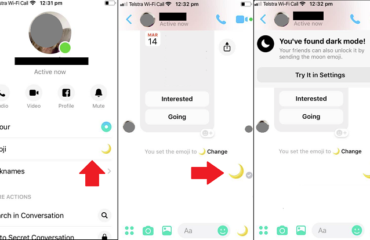
Digital Marketing for Real Estate: Boosting Your Business in the Online World
Introduction
In today’s fast-paced digital age, where almost everything is just a click away, it is crucial for real estate professionals to embrace the power of digital marketing to stay ahead of the competition. Digital marketing for real estate offers a myriad of opportunities to reach a wider audience, generate leads, and ultimately boost your business. This article explores the various aspects of digital marketing strategies tailored specifically for the real estate industry. From search engine optimization (SEO) to social media marketing, we’ll delve into effective techniques that can help you maximize your online presence and drive success in the real estate market.
Digital Marketing for Real Estate: A Winning Strategy
Digital marketing encompasses a wide range of tactics and platforms to promote your real estate business online. Let’s take a closer look at some key areas where digital marketing can make a significant impact.
1. Creating a User-Friendly Website
Your website serves as the foundation of your digital marketing efforts. It is essential to have a well-designed, user-friendly website that showcases your properties and services. Ensure that your website is responsive, loads quickly, and is easy to navigate. Incorporate high-quality images and videos to engage your visitors and provide detailed property information.
2. Implementing Search Engine Optimization (SEO)
SEO is the process of optimizing your website and content to rank higher in search engine results. By targeting relevant keywords and optimizing your website structure, meta tags, and content, you can increase organic traffic to your site. Conduct keyword research to identify popular search terms in the real estate industry, such as “buying a home” or “real estate investment.” Create informative and valuable content around these keywords to attract potential buyers and sellers.
3. Harnessing the Power of Social Media
Social media platforms offer a powerful way to connect with your target audience and promote your real estate listings. Establish a strong presence on popular platforms like Facebook, Instagram, and LinkedIn. Share visually appealing content, such as property photos, virtual tours, and informative videos. Engage with your followers by responding to comments, answering questions, and sharing relevant industry news. Leverage social media advertising options to expand your reach and target specific demographics.
4. Utilizing Email Marketing
Email marketing allows you to nurture leads and maintain regular communication with potential buyers and sellers. Build an email list by offering valuable content, such as newsletters, market reports, or exclusive property updates. Segment your email list based on specific criteria, such as buyer or seller preferences, location, or property type. Personalize your emails to provide tailored information and incentives that resonate with each recipient.
5. Embracing Video Marketing
Video has become a dominant medium in the digital landscape. Create engaging property videos, virtual tours, and neighborhood guides to captivate your audience. Video content can be shared on your website, social media platforms, and YouTube. Use video to showcase unique selling points, highlight property features, and build trust with potential clients.
6. Leveraging Online Advertising
Online advertising offers a targeted approach to reach potential buyers and sellers. Platforms like Google Ads and social media advertising provide options to display your ads to specific locations, demographics, and interests. Develop compelling ad copy and visuals that stand out and drive clicks. Monitor and optimize your campaigns regularly to maximize your return on investment (ROI).
FAQs
1. Q: How can digital marketing benefit my real estate business?
A: Digital marketing allows you to expand your reach, generate leads, and build brand awareness in the online realm. By utilizing various strategies like SEO, social media marketing, and online advertising, you can increase your chances of connecting with potential buyers and sellers.
- Q: How can I improve my website’s search engine rankings?
- A: To improve your website’s search engine rankings, focus on implementing effective SEO techniques. This includes optimizing your website’s structure, meta tags, and content with relevant keywords. Create valuable and informative content that appeals to your target audience and encourages them to engage with your website. Regularly update your website with fresh content and ensure it is mobile-friendly for optimal user experience.
- Q: What social media platforms should I prioritize for real estate marketing?
- A: The choice of social media platforms depends on your target audience and the type of content you wish to share. Facebook is a versatile platform that allows you to reach a wide range of demographics. Instagram is ideal for visually appealing property photos and virtual tours. LinkedIn can be useful for connecting with industry professionals and targeting a business-oriented audience. Consider your target audience’s preferences and behavior to select the most suitable platforms.
- Q: How often should I send emails to my subscribers?
- A: The frequency of your email communications depends on your audience’s preferences and the type of content you are providing. It is essential to strike a balance between staying top-of-mind and not overwhelming your subscribers. Aim to send regular newsletters, market updates, or property alerts, but avoid excessive emailing that may lead to unsubscribes. Monitor email engagement metrics to gauge the optimal frequency for your specific audience.
- Q: Is video marketing necessary for real estate?
- A: Video marketing has become increasingly important in the real estate industry. It allows you to showcase properties effectively, provide virtual tours, and establish a personal connection with potential clients. Video content tends to be more engaging and shareable, helping you attract a wider audience and differentiate yourself from competitors. Incorporating video marketing into your digital strategy can enhance your overall success.
- Q: How can I measure the effectiveness of my digital marketing efforts?
- A: Measuring the effectiveness of your digital marketing efforts is crucial to understand what strategies are working and identify areas for improvement. Utilize tools like Google Analytics to track website traffic, user behavior, and conversions. Monitor key performance indicators (KPIs) such as click-through rates, lead generation, and social media engagement. Regularly analyze your data and adjust your strategies accordingly to optimize your results.
Conclusion
Digital marketing has become indispensable for real estate professionals looking to thrive in the digital era. By leveraging strategies such as SEO, social media marketing, video marketing, and online advertising, you can elevate your online presence, attract a broader audience, and generate more leads. Remember to continuously analyze your efforts, adapt to the evolving digital landscape, and prioritize providing value to your potential buyers and sellers. With the right digital marketing tactics, your real estate business can flourish in the competitive online world.




